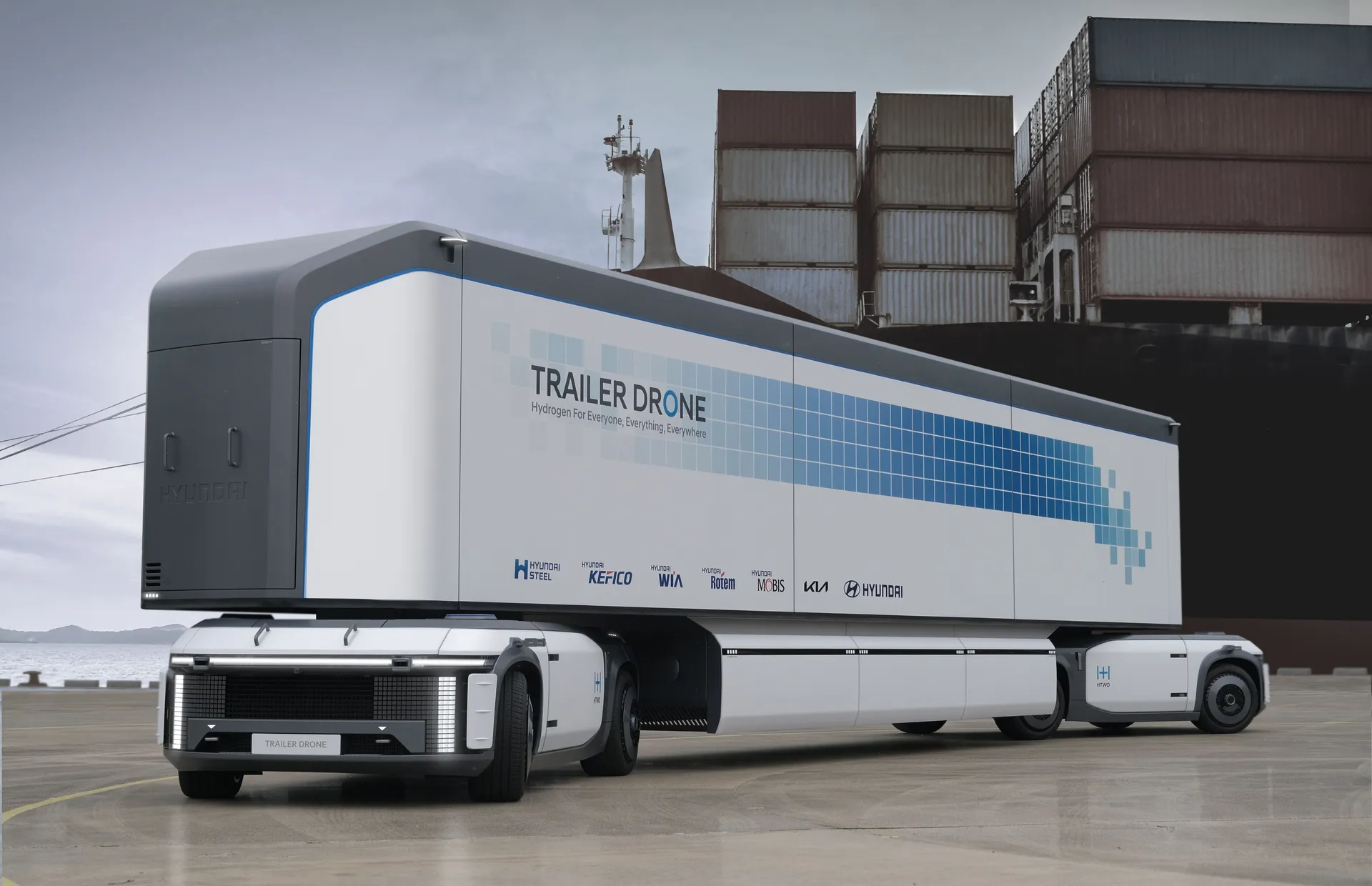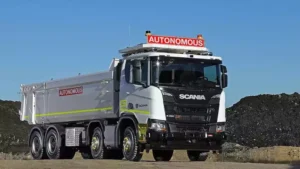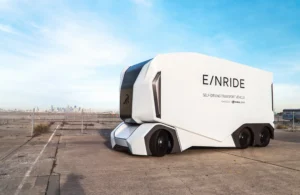
Hyundai's hydrogen fuelled e-bogie concept needs no driver.
What would you call a truck built by Daimler, Mitsubishi, Fuso, Hino and Toyota?
Using the first two letters of each company creates the word “DaMiFuHiTo”.
Said aloud, “damifuhito” sounds good in any language and here in Mzansi, such a brand even suggests a damn fine truck, haibo!
And a damn fine truck, or bus, is what the collaboration aims to achieve, alongside the lofty goals of achieving carbon neutrality and creating a prosperous mobility society.

Doomed from the start?
But the five companies involved are also basing the development of such a Damifuhito truck or bus on CASE technologies, which is what may doom this collaboration from the start.
CASE stands for Connected, Autonomous and Automated, Shared and Electric. In the politically correct speak of boardrooms, this means “strengthening the commercial vehicle business on a global scale”.
On paper, it sounds good and such self-steering vehicles are driving on pre-programmed short routes in environments as diverse as factory floors, muddy farm fields, open pit mines and university campuses.

Nor is driverless trucks that do not burn diesel a new dream. Hyundai’s hydrogen-powered fuel-cell drone, or ebogie, is joined by a slew of electric container movers whose number include Einride, Volvo, Scania and Mercedes-Benz. None of these concepts have made it into fleets around the world yet, because they are so expensive and the heavy battery packs so unfit for purpose.
Robots find driving difficult
For a while, Apple led the pack, but the company has announced it will stop all efforts to make a self-driving car, while Waymo learned a hard lesson when revellers burnt one of its robotaxis at a New Year’s parade in San Francisco’s ChinaTown.
Apple is the world’s second wealthiest corporation after Microsoft, but basically said making self-driving cars is too hard and too expensive.
Waymo is a robotaxi experiment by Google holding company Alphabet, but people have now raged against this machine in SanFran, arguably the most tech-friendly city on Earth.
Collaboration can also mean oligopoly
Which then begs the question, can the collaboration between five experienced vehicle builders succeed in building an affordable, working CASE chassis for commercial use after giant software companies Apple and Google have so far failed to do the same for passenger cars?
Only time will tell, but if the collaboration can deliver commercial chassis with vastly cheaper parts and servicing, due to five times less duplication, such a Damifuhito chassis will be welcomed all over Africa.
Don’t hold your breath though, less duplication also means less competition and history shows no corporate can resist increasing prices in such an oligopoly.






